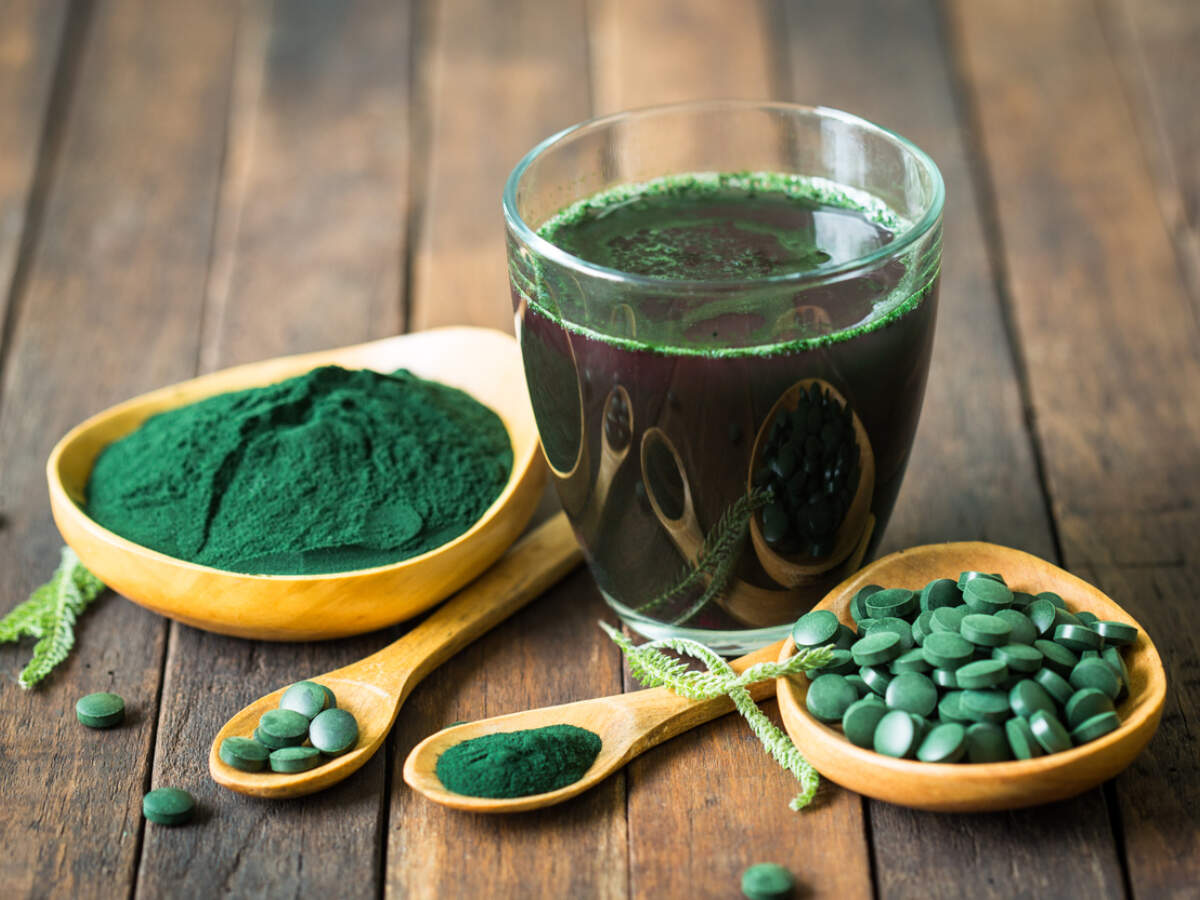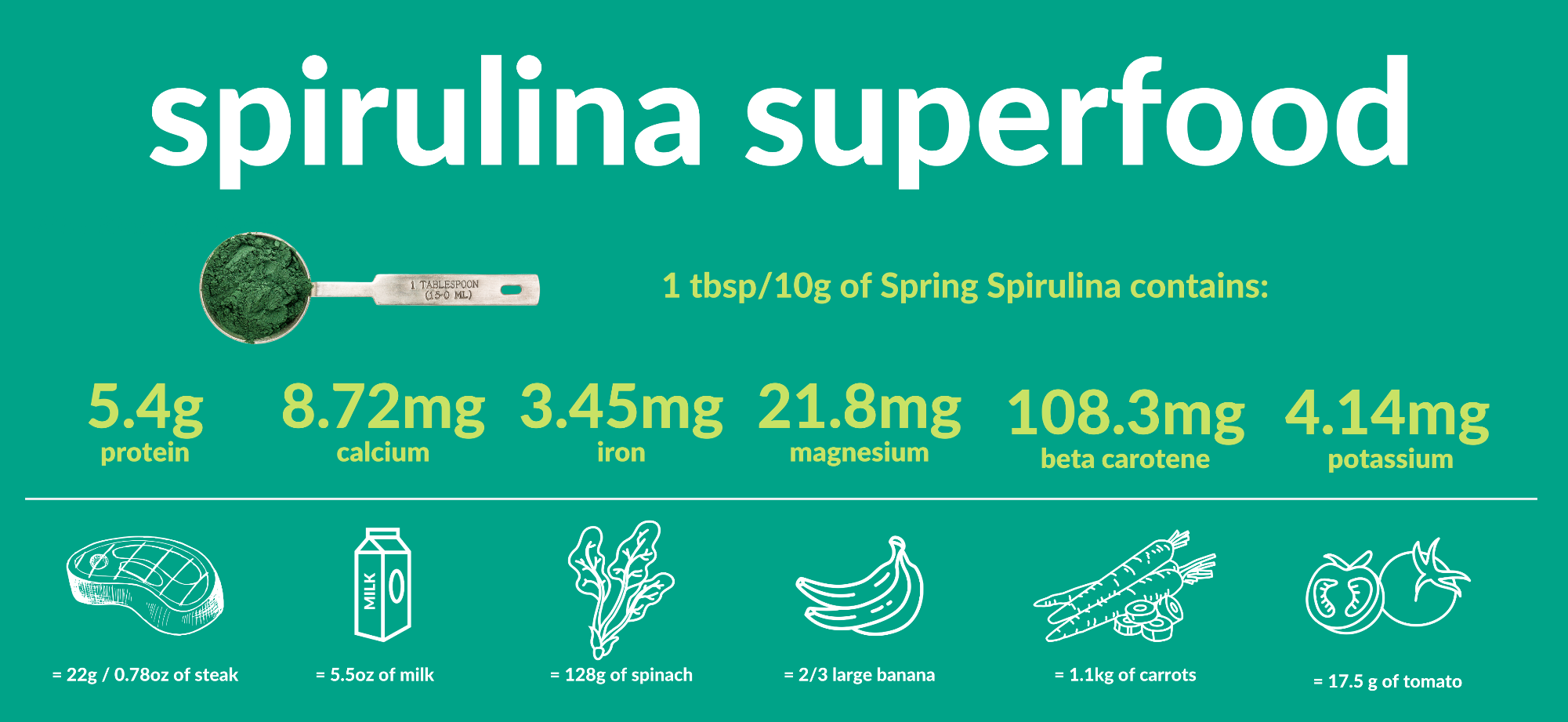Biological Source and Health Benefits of Spirulina
Biological Components of Spirulina
Spirulina is a dietary supplement sourced from filamentous blue-green algae to improve the immune system and increase the intake of vitamins. The supplements for human consumption is generally sourced from three cyanobacteria species of the same family Arthrospira and the most commonly used species is Arthrospira platensis. In the dietary supplement, the dried biomass of these species is used.

Why Spirulina is so effective as a supplement?
The Nutrient Content of Spirulina is diverse and its high-nutrient density is what makes it an all-natural superfood. 60 to 70 per cent of Spirulina’s dry weight is protein and amino acids. All essential amino acids with vitamins and minerals that are essential for our systems help to rejuvenate and pumps up the health benefits of Spirulina.
Spirulina is one of the most consumed dietary supplements in the market. The story of the fame of health benefits of Spirulina is also interesting as NASA first used it as a dietary supplement for astronauts. The research conducted for the immune-boosting, anti-allergic and anti-inflammatory properties of Spirulina has been proved to have numeral health benefits. Here are the top health benefits of Spirulina.
Top 7 Health Benefits of Spirulina:
-
Boosting Immune response:
According to NCBI , researches conducted on the different body secretions and reaction sites has shown higher immune response after consumption of Spirulina on a daily basis.
Studies on the levels of ImmunoglobulinA before and after Spirulina has shown great improvement with mucosal immunity.
This Microalgal extract has shown a pivotal role in increasing natural killer cell damage and the production of IFN-gamma increased. All of these are indications of stronger immunology.

2. Improving Allergy Reactions:
As Spirulina has the capacity to inhibit Histamin at the mast cells their capacity in the restriction of rhinitis allergic reactions are studied. A placebo-controlled trial has shown great improvement in immunoglobulin induced allergy. With increased levels of IL-4, IFN-gamma, IL-2 improved nose allergy significantly.
3. Restore Deficient Nutrients:
The health benefits of Spirulina are very effective because of its high-protein, multi-vitamin components and the capability to restore deficient nutrients. It is rich in vitamin B1, B2, B3, B6, B12, Vitamin E, K, folic acid, Calcium, magnesium, potassium, sodium, iron. Hence, this supplement nourishes the deficiency in the body resulting in the health benefits of Spirulina.
4. Fatigue relief:
The presence of polysaccharides and essential fatty acids makes this supplement effective in the relief of Fatigue. The high levels of extracted glycogen are helpful in replenishing the body and the Glycolic acid rejuvenates skin glow. A pilot study was conducted by Ohio State’s Department of Human Sciences on the basis of mental and physical fatigue state. The health benefits of Spirulina improved both short-term and long mental fatigue. compared to placebo.
5. Antioxidant Properties:
The health benefits of Spirulina are multi-dimensional. Because of its anti-inflammatory properties and oxidant rich component it repairs oxidative damages and prevents the build-up of toxins. Spirulina’s phytocyanin prevents free radical formation on the cells providing its anti-oxidant properties.
6. Lowers triglycerides and bad cholesterol:
Studies have proved to lower the levels of triglycerides and bad cholesterol levels in people when the supplements are taken for at least three months. It has significantly reduced the bad fat in the blood vessels and increased good cholesterol with a dosage of 1g per day according to a 2013 study. Because of its hypolipidaemic effects, it can reduce the mean values of triglycerides, low-density lipoprotein cholesterol and increase the ratio of total cholesterol to HDL. But there has been no factual evidence of increasing HDL.
7. Anti-Viral Properties:
According to a study described in PubMed anti-viral properties of Spirulina are quite effective in some of the viruses. In hot water extract, Spirulina inhibited Pseudorabies Virus, Herpes Simplex Virus-2 and 1, human cytomegalovirus with respective ED doses. Spirulina may not show anti-viral effects against SSPE, VSV and some other viruses. But overall it can improve your allergy due to viruses and boost your immunity.
These were some of the reasons which you should consider adding Spirulina as a supplement to your diet and how it can help you with your health and nutritional deficits. But always remember a supplement even one with the health benefits of Spirulina can never be an alternative to medicine or other treatments your body may need. And, always feel free to contact your doctor if your body may need it.
Also read:

